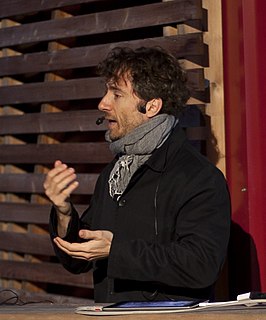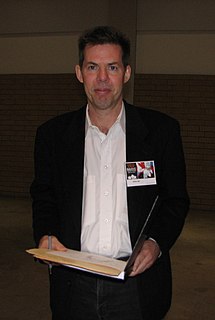A Quote by Thomas Heatherwick
At the root of everything I do is a fascination with ideas - what ideas are for, what jobs they do.
Quote Topics
Related Quotes
I always believed as a speechwriter that if you could persuade the president to commit himself to certain words, he would feel himself committed to the ideas that underlay those words. And the big shock to me has been that although the president said the words, he just did not absorb the ideas. And that is the root of, maybe, everything.
I think leaders lead themselves, but leaders have ideas and maybe they're visionary ideas. Probably today, people would say Steve Jobs was a visionary because he invented this little gadget, the cell phone. But he didn't invent cell phones, and he didn't design the cell phone. He just took a couple of ideas and put them together, and no one else put those same ideas together as successfully as he did. But he had something that he was trying to do that intrigued him, and he could do it very well.
If you hear a good idea, capture it; write it down. Don't trust your memory. Then on a cold wintry evening, go back through your journal, the ideas that changed your life, the ideas that saved your marriage, the ideas that bailed you out of bankruptcy, the ideas that helped you become successful, the ideas that made you millions. What a good review-going back over the collection of ideas that you gathered over the years. So be a collector of good ideas for your business, for your relationships, for your future.
The acts of the mind, wherein it exerts its power over simple ideas, are chiefly these three: 1. Combining several simple ideas into one compound one, and thus all complex ideas are made. 2. The second is bringing two ideas, whether simple or complex, together, and setting them by one another so as to take a view of them at once, without uniting them into one, by which it gets all its ideas of relations. 3. The third is separating them from all other ideas that accompany them in their real existence: this is called abstraction, and thus all its general ideas are made.
Our world, so we see and hear on all sides, is drowning in materialism, commercialism, consumerism. But the problem is not really there. What we ordinarily speak of as materialism is a result, not a cause. The root of materialism is a poverty of ideas about the inner and the outer world. Less and less does our contemporary culture have, or even seek, commerce with great ideas, and it is that lack that is weakening the human spirit. This is the essence of materialism. Materialism is a disease of the mind starved for ideas.







































